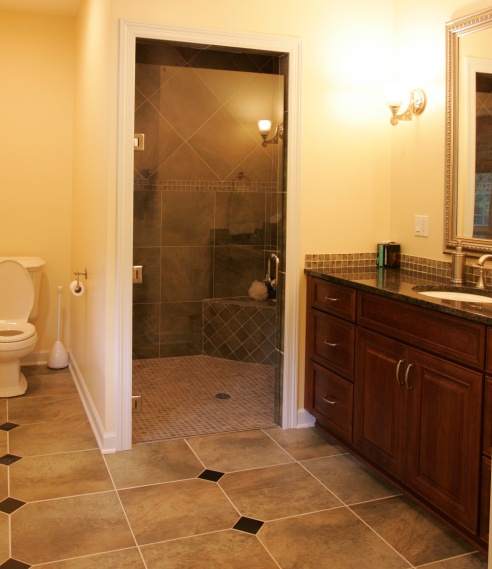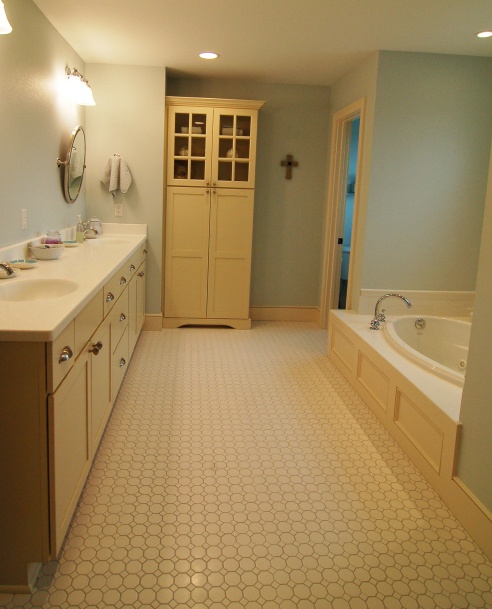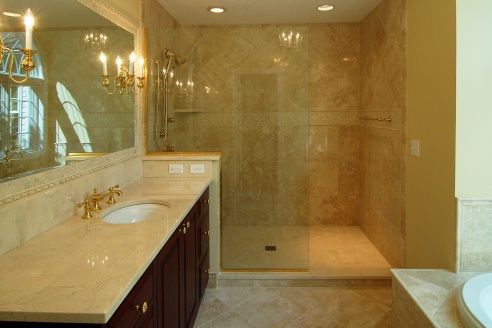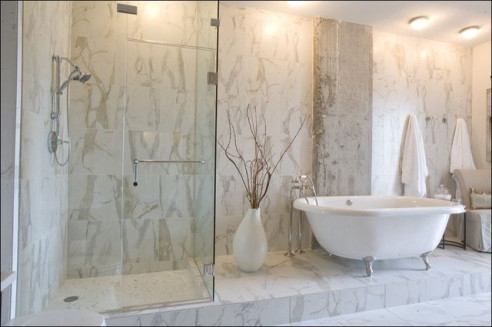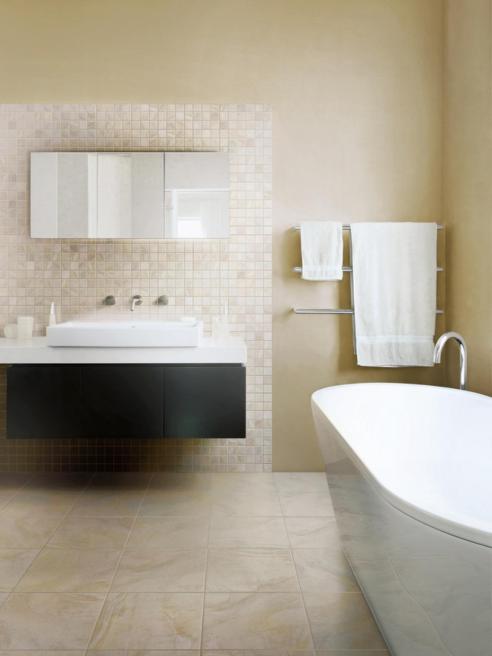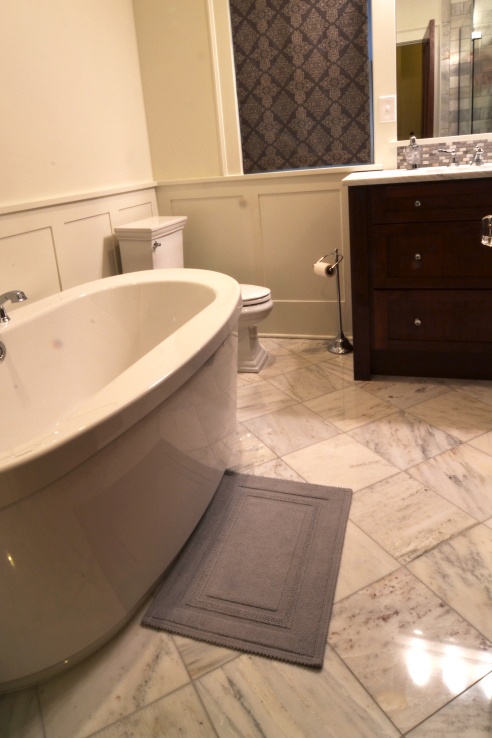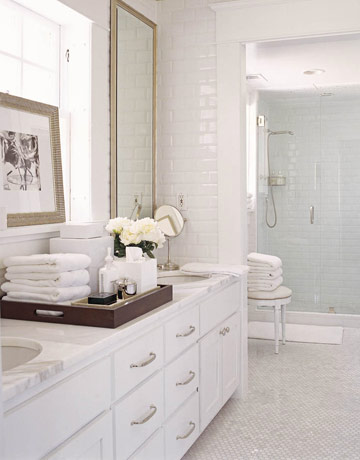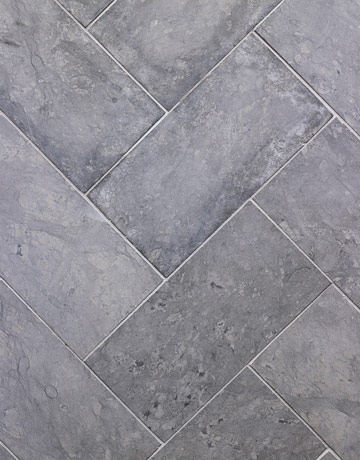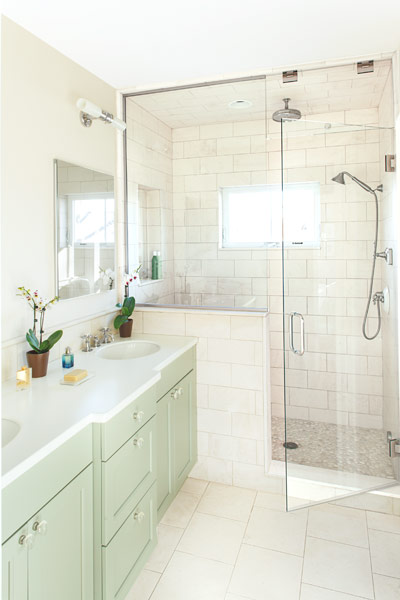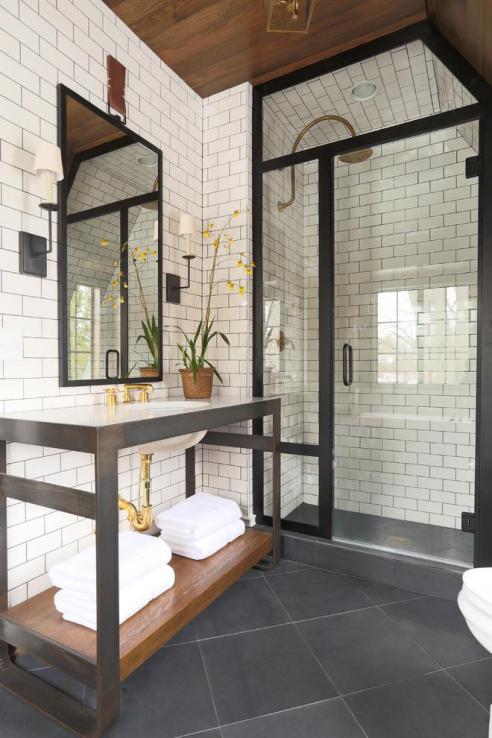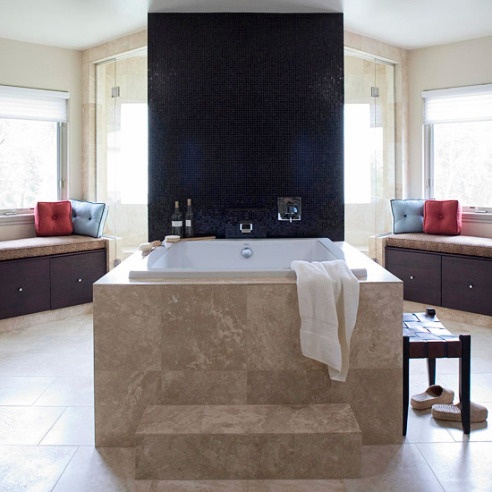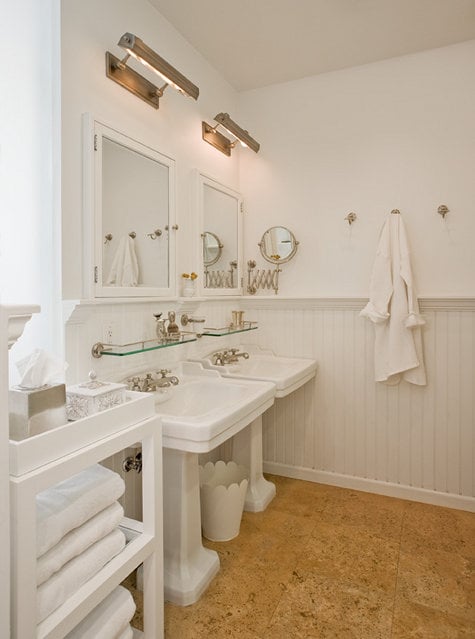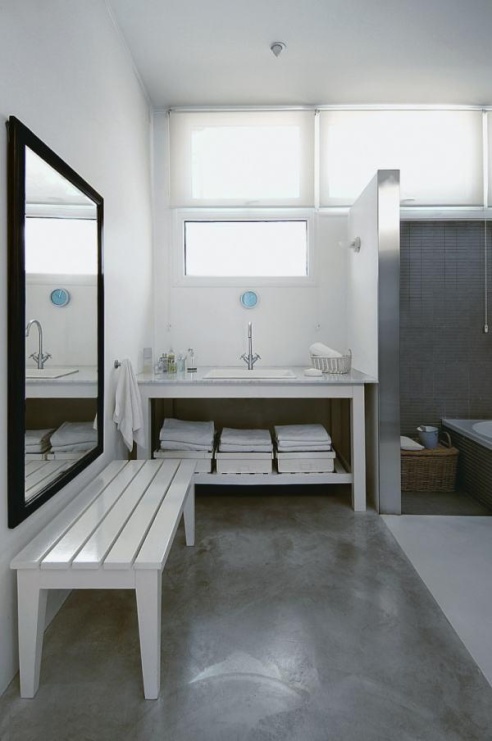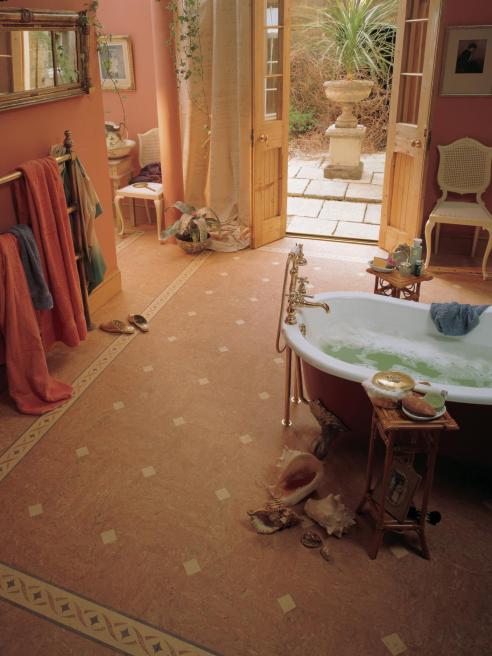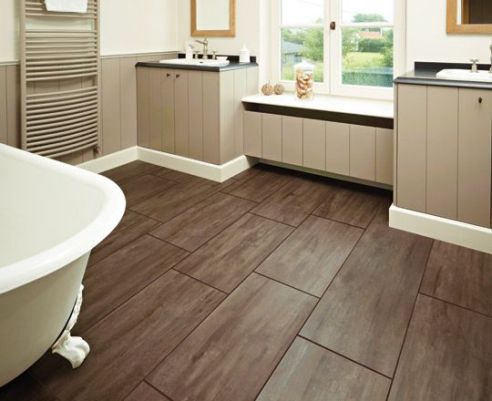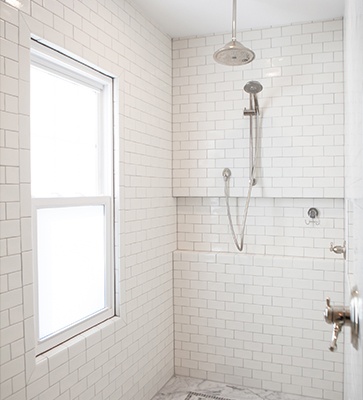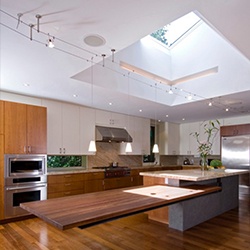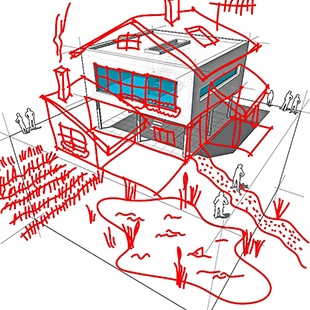Choosing flooring for your bathroom may seem like a fairly simple project until you start looking at all the options. Then, you may easily find yourself quite overwhelmed! To use a total cliché – the sky really is the limit on colors, materials, pattern, etc.
To help narrow your focus a bit, here’s a quick overview of some of the pros and cons of the most popular options.
Ceramic or porcelain tile. Probably the most popular option due to their balance of functionality and cost (quite reasonable). Porcelain is harder and denser than ceramic tile, and is usually our first consideration for bathroom flooring, due to the huge variety of options.
Pros
• Durable and waterproof
• Resistant to stains and bacteria
• Huge variety of sizes, shapes, textures, and colors. With ceramic and porcelain, you can get the look of natural stone at a much lower cost and even find tiles that look like fabric and leather.
• Easy to clean
• Porcelain: the color and texture runs all through these tiles, which disguises chips and scratches (with ceramic tile, the pattern or color is a glazed on the top only).
• Can be rectified to allow for thin grout lines
Cons
• Cold to the touch. But, you can solve that problem by installing a radiant floor heating system.
• Non-textured, large tiles can be slippery
• Tiles can crack and grout can become stained over long periods of time
Natural stone. Think limestone/travertine, marble, granite and slate.
Pros
• Many beautiful options for all types of décor
• Sharp corners and clean cuts allow for thin grout lines
Cons
• Cold. Again, the radiant heat can solve this.
• Slippery. But, most stones can be textured through sandblasting. Slate has natural texture that makes it more slip-resistant.
• Cost – it can be quite expensive.
• Maintenance (at least more than required for ceramic tile). Depending on what you choose, you may need to seal it.
• (Marble) More likely to develop a patina and start to show wear over time. We think this is what makes marble floors beautiful and unique, but this turns some people off. Sealing it periodically can help, but something to be aware of. Marble also requires mild cleaning products (nothing containing acids).
(Note: Though there are far more ‘cons’ than ‘pros’ in this category, it must be stated that the beauty of many of these natural stones greatly outweighs many of the disadvantages.)
Cork. Relatively new on the bathroom floor scene, but one that warrants serious consideration. We LOVE cork. HOWEVER, we would not recommend this in a main bathroom due to its potential for water damage. Cork is suitable for a powder room only.
Pros
• Offers a soft, warm feel underfoot
• Naturally resistant to mold, mildew, and bacteria
• Naturally repels moisture
• Environmentally-friendly (highly renewable)
• Muffles sound
Cons
• Water absorption. It’s somewhat water resistant, but large amounts left standing on the floor can damage it. A polyurethane finish can help, but it’s best to just not to use this somewhere with a lot of moisture.
Glass. These tiles are popular in bathrooms, but are best for accents only due to their lack of durability.
Pros
• Endless options for color, sizes, shapes, and textures
• Often sold on mesh-backed sheets, which makes installation easy for DIY’ers
• Green – often made from recycled materials
• Moisture-resistant
Cons
• Can be slippery
• Prone to scratching
• Lack of durability – glass can shatter! Again, that’s why it’s best used for small accents only.
Concrete. This flooring can be so gorgeous! However, it does have its limitations; for example, it can’t really be used in an upstairs bathroom over a wood floor. But, polishing or staining existing concrete in a basement bathroom is a great way to work with what you already have.
Pros
• Can be poured to look like stone but is less expensive
• Can be stamped or stained to match any décor
Cons
• Requires sealing to prevent staining
• Versatility
Linoleum. Although this type of flooring may seem out-of-date, it’s making a huge comeback in homes due to its eco-friendliness, durability, and surprising beauty.
Pros
• Durable and very long-lasting
• Springy and warm underfoot
• Through-color, which helps disguise scratches and scuffs
• Eco-friendly natural product (bio-degradable and recyclable)
• Anti-bacterial and repellant to dirt
• Doesn’t harbor allergens or micro-organisms; free of solvents and VOCs
• Huge variety of options
• Very economical
Cons
• Surface can be cut or marred
• If not properly cleaned, can become yellow or dingy looking over time
• Reputation – it’s making a comeback, but some people still consider this a cheap and inferior product.
• Some varieties are less water resistant than others
Luxury Vinyl. This flooring is gaining popularity because it’s very economical and its effort at mimicking wood and stone is good enough to fool the eye. The tile products can even be grouted.
Pros
• Durable and versatile
• Softer under foot than tile
• Can be laid to look like ceramic, stone, or wood
• Is water resistant, low maintenance, an easy to clean
• Is resistant to dents, scratches, and stains
Cons
• Similar to linoleum – reputation
• Lack of eco-friendliness – it’s a synthetic product made of petrochemicals
• Patterns are only printed on the surface
Sources: Kaufman Construction, Kaufman Construction, Kaufman Construction, Kaufman Construction, Houzz, HGTV, Kaufman Construction, House Beautiful, House Beautiful, This Old House, en.Paperblog.com, Better Homes & Gardens, Design Sponge, Home-designing.com, HGTV, McKay Flooring
